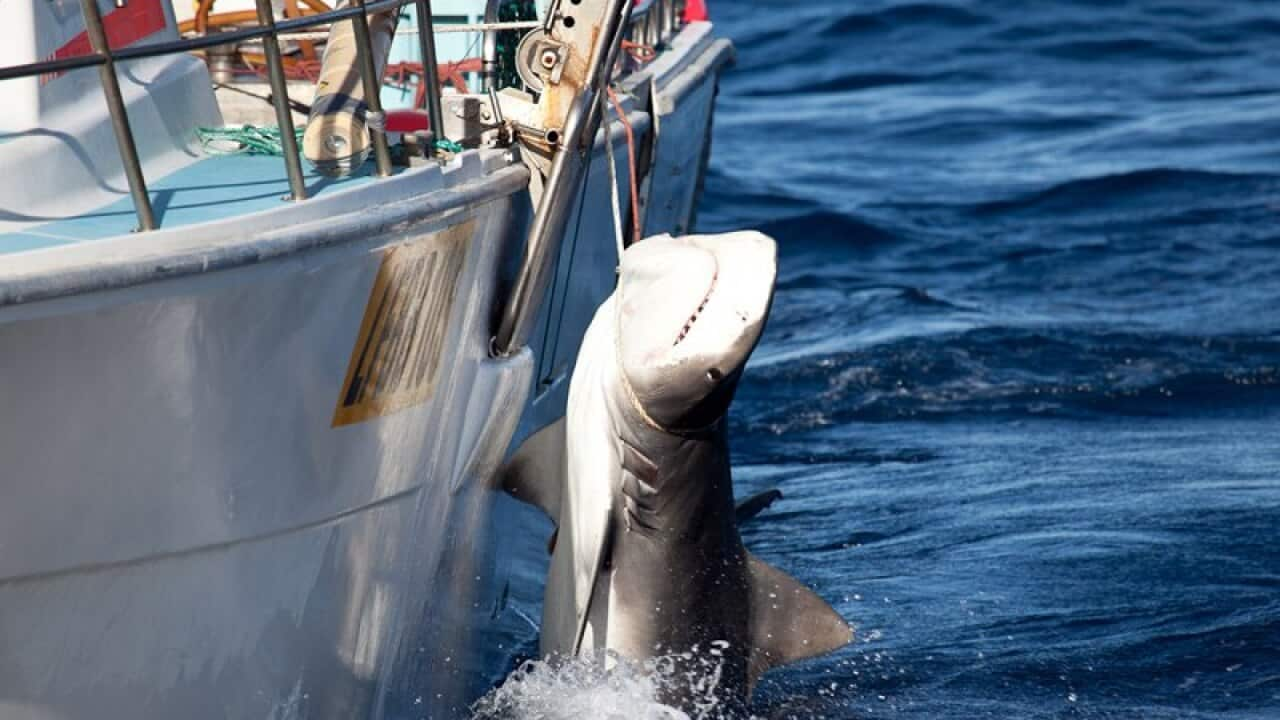The controversial SMART drumline trial will be extended another 12 months in Western Australia to collect more data, at a cost of $2.8 million.
It adds to the estimated $3.5 million spent on the first 15 months of the trial.
The drumlines caught only two white sharks and 46 other sharks, including tiger sharks and bronze whalers, during the first year off the coast near Gracetown,
As of April 20, a further 27 non-target species were caught.
WA's chief scientist Peter Klinken will continue to review the data collected so far to see if the trial's methodology can be improved.
Professor Klinken said the more data available, the more rigorous the evaluation could be about the effectiveness of the technology in reducing the risk of white shark attacks.
"Any additional data that can be collected will contribute to increasing understanding of all species caught," he said in a statement on Sunday.
"Satellite tagging of species such as tiger sharks will allow a better understanding of their movement and survival rates, which is of interest locally and internationally.
"Tagging more white sharks with acoustic and satellite tags to assess small-scale and large-scale movements will add to the scientific understanding of this species in south western Australia and beyond."
Fisheries minister Peter Tinley said the government would continue to provide genetic samples of white sharks to the CSIRO to evaluate the size of the southern-western population.
"Genetic analyses also provide significant insights into the biology of the species," he said.

